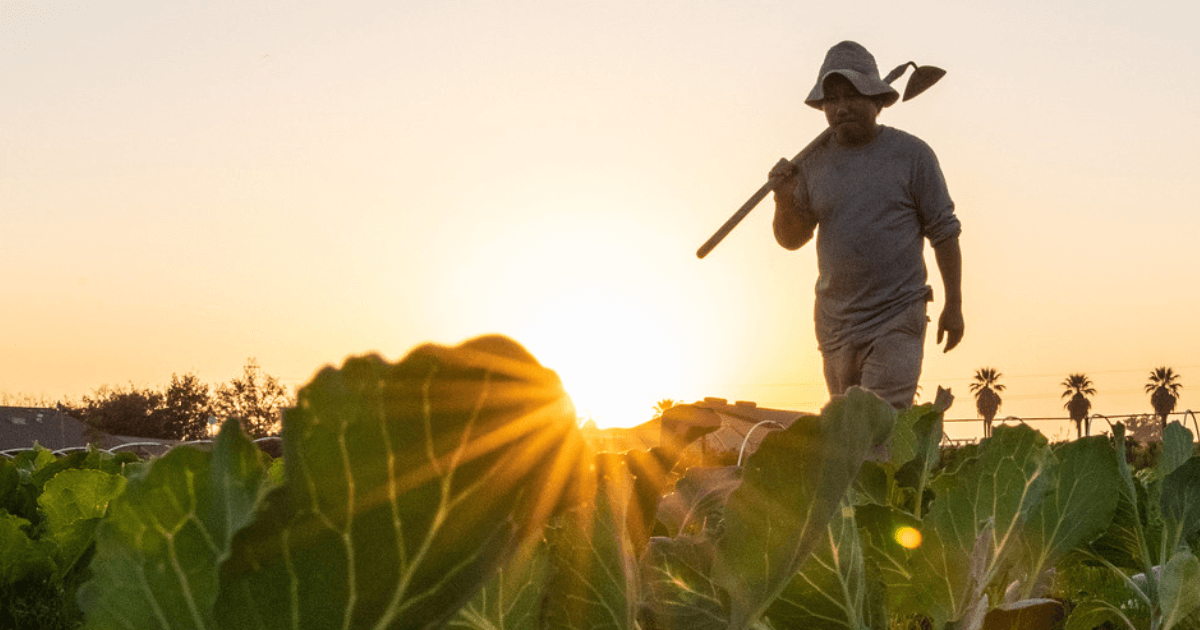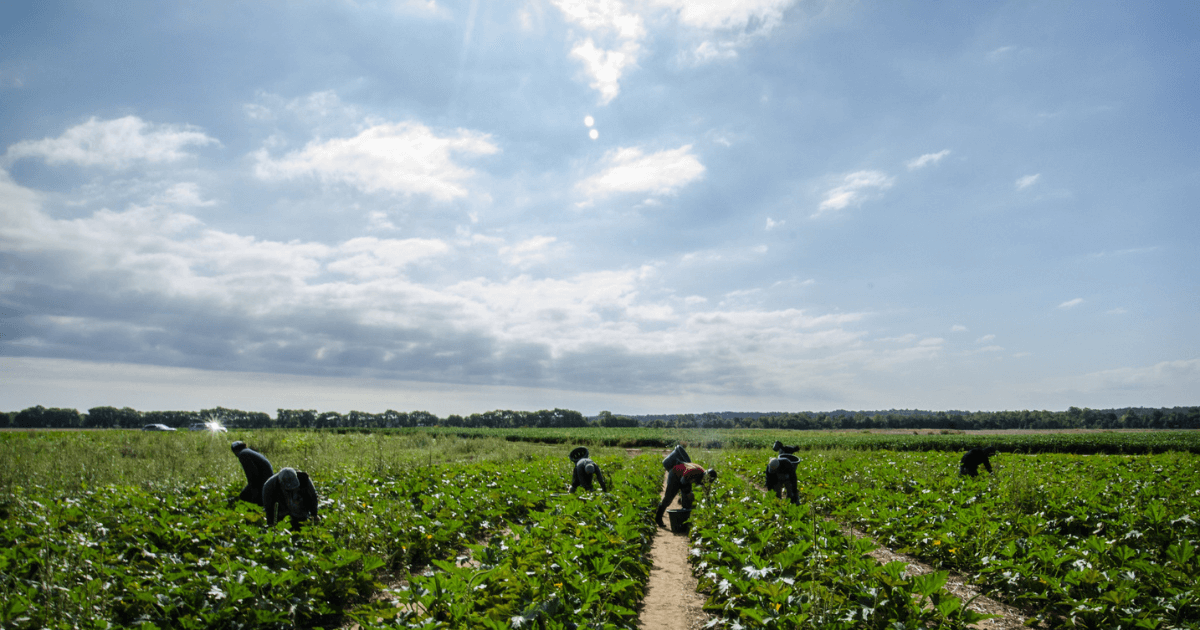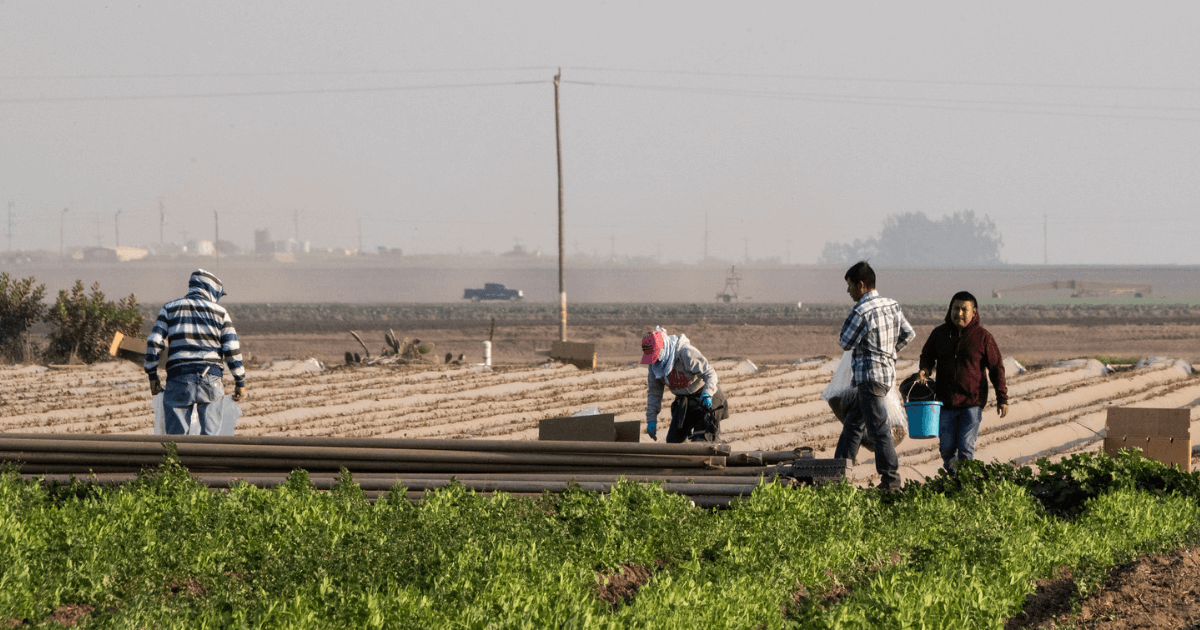Federal Heat Standard Much Needed, Long Overdue, and Already in Jeopardy: Migrant Clinicians Network Statement

Last week, the Department of Labor’s Occupational Safety and Health Administration (OSHA) proposed a federal heat standard that would be the first to protect outdoor workers nationwide from the dangers of extreme heat. Migrant Clinicians Network applauds OSHA’s proposed rule, which is estimated to protect 36 million workers from heat-related injuries and death. As the climate crisis continues to bear down on US workers with hotter and longer heat waves, this standard will require businesses to enact common-sense tactics to protect the health and well-being of their workers, including to identify heat hazards, develop emergency heat plans, provide trainings, and implement simple practices like rest breaks and access to water and shade.
High-quality federal standard
The standard is well considered. For example, high-heat rest breaks must be paid, an important specification for farmworkers who are paid by the volume of produce harvested (so-called “piece-work”). These workers often forgo breaks because they are unpaid. Acclimatization is incorporated; new and returning workers will be provided a pathway to help their bodies acclimate to exertion in high heat, which will address the staggering 70% of heat-related deaths that occur in workers’ first three days of work. When fully enacted, this standard will save lives. More work is now needed to secure this standard.

Addresses a long-overdue need
Migrant Clinicians Network has written and advocated for decades on the need for a federal heat standard. Farmworkers are at the highest risk of heat-related illness and death – estimated at 35 times more likely to die from heat stress than other workers -- due to longstanding health and social inequities and the structural components that drive those inequities, from immigration policy that creates economic instability and long-term stress, reduces access to health care, and limits job opportunity; to local and federal practices and policies that result in farmworkers’ higher exposure to the environmental burdens like pesticides and air and water pollution. But recent years’ climate-fueled heat records – higher heat indices than ever before, longer heat waves, and heat episodes that arrive earlier and later in the year than is historically normal – have transformed this regulatory need into a desperate climate emergency. The number of workers exposed globally to extreme heat has grown by 34.7% from 2000 to 2020 – and is continuing to grow.
“We cannot wait even one day longer for federal action,” emphasized Amy Liebman, MPA, Chief Program Officer of Workers, Environment, and Climate for Migrant Clinicians Network, who has spoken widely for decades on the need for protection from heat for workers at the local, state, and federal levels. “Workers are dying – and it’s getting hotter and hotter.”
Economic benefit
It is estimated that, without heat standards, US employers lose roughly $100 billion per year in lost productivity. At least 50,000 injuries and illnesses could be prevented every year in the US. High heat is associated with increased violence, mental health needs, and workplace incidents. Heat interventions with water, rest, and shade have shown worker productivity to increase significantly, providing a significant return on investment while also protecting workers’ health.

The regulation’s future is uncertain
There remain several steps before OSHA can promulgate the final rule, including a 120-day comment period and public hearings. The earliest the rule may come into effect is 2025. Moreover, the regulation is facing massive hurdles.
The recent Supreme Court decision to overturn the Chevron Deference legal precedent reduces the authority of agencies like OSHA from issuing protections that aren’t specifically outlined in legislation, requiring Congress to specifically authorize agencies to issue regulation under their purview. Without action from Congress, the standard may be vulnerable to court challenges. Additionally, if former President Donald Trump is re-elected, a heat standard would likely be overturned.
Call for legislation
Migrant Clinicians Network calls once again on Congress to pass the Asunción Valdivia Heat Illness, Injury, and Fatality Prevention Act. Twenty years after Asunción Valdivia lost his life to heat stroke after a 10-hour shift picking grapes in 105-degree weather, hundreds of preventable heat-related deaths continue to happen every year. The bill would direct OSHA to establish a permanent federal heat standard that could not be overturned in the courts or by future presidents.

Call for taking the emergency seriously
Additionally, Migrant Clinicians Network has joined many other organizations to petition that the Federal Emergency Management Agency should include extreme heat and wildfire smoke as major disasters under the Stafford Act. This will allow emergency funds to flow in areas that are deeply impacted by heat – including health and economic impacts.
Next steps
Clinicians are critical voices in this ongoing challenge. Farmworkers and other workers’ lives are being lost every week in climate-fueled heat as a result of preventable heat stress. Please join us in advocating for their lives.
- Public comments: OSHA will soon open its public comment period. Watch MCN’s social media and be sure to comment on the importance of this standard.
- Legislation: Call your legislators and ask them to make the Asunción Valdivia Heat Illness, Injury and Fatality Prevention Act into law. You can read more in Public Citizen’s fact sheet about the Act.
- Vote: The coming election has outsized consequences for the health and well-being of our most marginalized patients, who already face significant inequities and disparities.
- Share your stories: Clinicians, please share with Migrant Clinicians Network the stories of your patients and community members who have struggled with heat. Email your story to media@migrantclinician.org.
Resources
Learn more about heat stress and access resources for patients.
- MCN’s Heat page has numerous archived webinars and dozens of high-quality printable resources, both patient-facing and for clinicians, in English and Spanish.
- MCN’s blog regularly covers heat and climate change. Read our three-part series from summer 2023:
- MCN staff have authored numerous peer-reviewed journal articles on the impact of climate and heat on marginalized workers.
- Liebman AK, Pagan-Santana M, Seda CH. The Climate Migrant: Health Risks Before, During, and After Migration. J National Hispanic Medical Association. 2024;2(1):36-43. doi:10.59867/nhma0305
- Pagán-Santana M, Liebman AK, Seda CH. Deepening the Divide: Health Inequities and Climate Change among Farmworkers. J Agromedicine. 2022 Nov 18:1-4. doi: 10.1080/1059924X.2022.2148034. Epub ahead of print. PMID: 36384449.
- Pagán-Santana M, Liebman AK, López-Correa AY. Looking at the gaps and program needs to address the impact on children of agricultural workers in Puerto Rico during and after public health emergencies. Front Public Health. 2022 Nov 7;10:1046701. doi: 10.3389/fpubh.2022.1046701. PMID: 36419994; PMCID: PMC9677091.
- MCN and Farmworker Justice teamed up for the Heat-Related Illness Clinician’s Guide, available in English and Spanish.
- Log in to post comments
